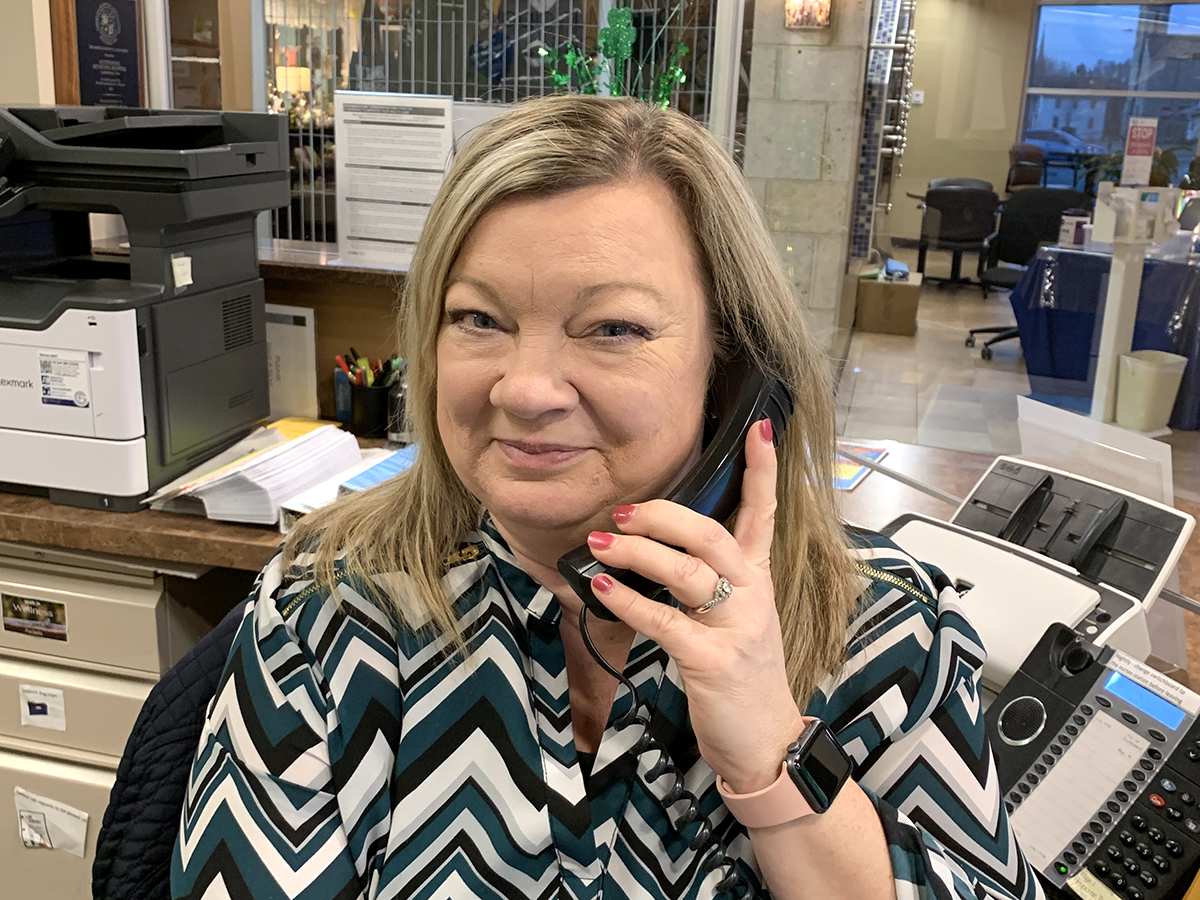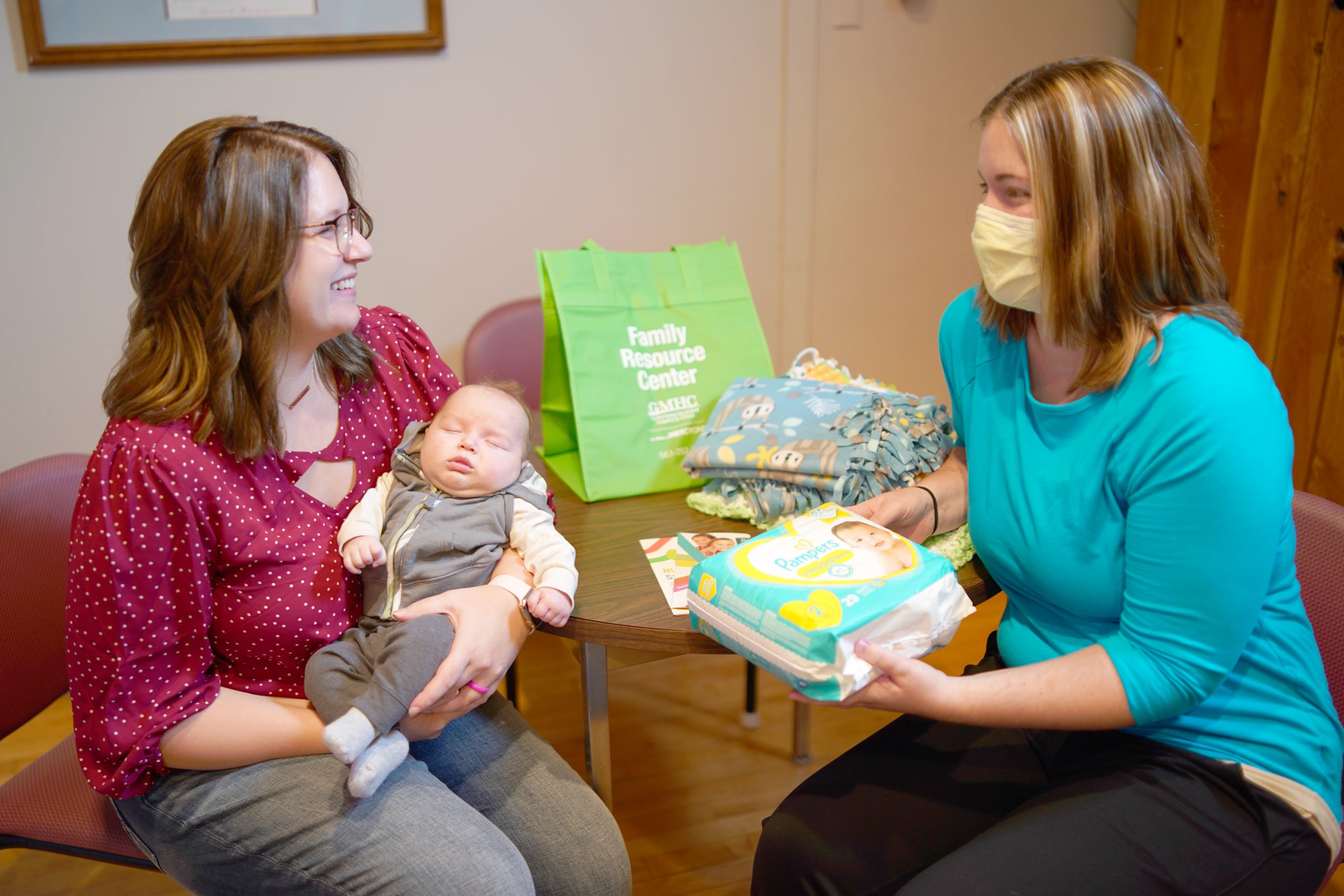Speech Therapy
Speech Therapy is one of many therapy and rehabilitation services offered close to home, at GMHC. Appointments are held within the Physical Therapy department on the second floor.
Speech therapy provides an individualized evaluation and treatment for those struggling with speech, language, social communication, cognitive-communication, and swallowing issues. GMHC offers inpatient (acute and skilled) and outpatient services. Difficulties after being diagnosed with a stroke, traumatic brain injury, Parkinson’s, Alzheimer’s, Multiple Sclerosis, swallowing problems, and voice problems all benefit from speech therapy.
Our speech therapists also provide evaluations and ongoing outpatient therapy for children who need help pursuing delayed developmental milestones for speech, language, social skills, and feeding. Treatment may include physical exercises to strengthen muscles, speech drills to improve clarity, and specialized activities to increase receptive and expressive language development. Your Child’s Milestone Guide.
Speech therapy offers the following types of evaluations and treatment:
- Parkinson’s LSVT LOUD®
- Clinical Swallow Evaluation
- Video Swallow Study (Modified Barium Swallow Study)
- Patient and Family Education
- Pediatric Feeding and Swallowing
- Stroke and traumatic brain injury
- Stuttering
- Articulation disorders (difficulties making sounds)
- Language disorders (difficulty comprehending language or expressing thoughts)
- Aphasia (difficulty finding words)
- Voice disorders
- Cognitive communications disorders (problem solving)
- Memory deficits
- Adult Swallowing disorders
- Devices and techniques for alternative communication
- Your Child’s Milestone Guide
Speech Therapy Certifications:
LSVT LOUD®
LSVT LOUD® (same link above) trains people with Parkinson Disease (PD) to use their voice at a more normal loudness level while speaking at home, work, or in the community. Key to the treatment is helping people “recalibrate” their perceptions so they know how loud or soft they sound to other people and can feel comfortable using a stronger voice at a normal loudness level. It’s an intensive, effective, one-on-one treatment created to help people with PD and other neurological conditions.
Through LSVT LOUD® our speech therapists will address:
- Improving your vocal loudness
- Improve your articulation
- Improving your speech intelligibly
- Improving your intonation
- Improving your confidence with speaking
- improving neural functioning related to voice and speech
LSVT BIG® is a treatment through the GMHC Physical Therapy department that focuses on training people with Parkinson disease (PD) to use their body more normally. It’s an intensive, effective, one-on-one treatment created to help people with PD and other neurological conditions. Learn more.
Sequential Oral Sensory (S.O.S) Approach to Pediatric Feeding
The Sequential Oral Sensory approach to feeding is an evidence-based program that works with families of individuals who are picky eaters or refusing to eat a specific food consistency due to sensory aversions. Speech and occupational therapists collaborate to develop and teach families strategies including food play to help the individual work through the 32 steps to eating to expand and grow the number of foods the individual is eating consistently.
This approach follows a sensory hierarchy that requires a child be able to first tolerate the new food, begin to interact, smell, touch, and eventually taste the new food. Therapists work with families to teach them how to implement this program at home to maximize therapy results.
Frequently Asked Questions about Speech Therapy
What do I need to bring with me?
If your provider sent your Therapy Services referral (order) with you, the therapist will need this along with payment information such as your insurance card or worker’s compensation claim number and contact information.
How should I dress?
Casual and comfortable.
What happens during my visit?
· Arrive 10-15 minutes early to complete paperwork.
· The therapist will perform your initial evaluation.
· The therapist will discuss with you:
- Your medical history including medications and tests.
- Your current problems/complaints.
- How your daily activity or function is limited.
- Your goals for/with therapy.
How long will each session last?
Your initial evaluation may take up to 60 minutes. Each follow up visit may take up to 30-45 minutes.







